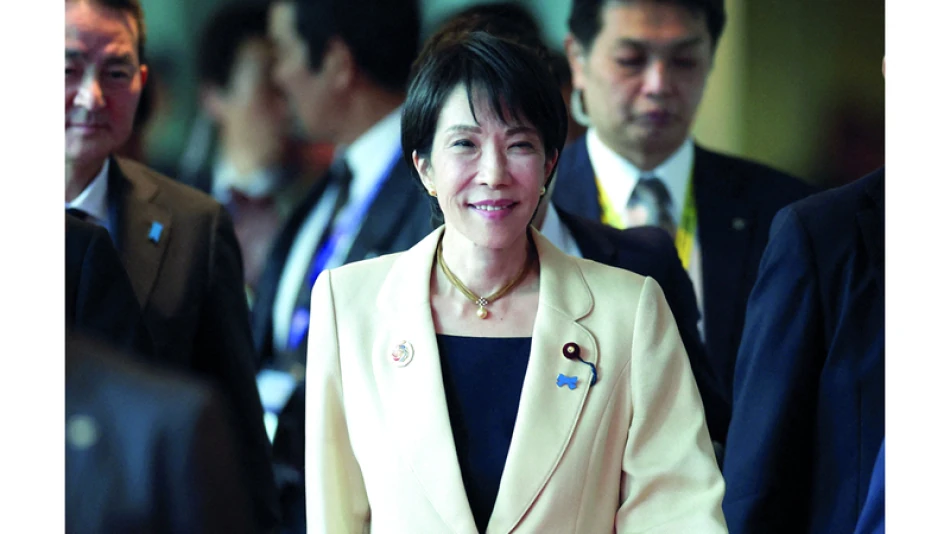
Japan Seeks Foreign Workers, Rejecting Takeshi's Extremist Nationalism
Japan just got its first female prime minister, but Sanae Takaishi's rise to power might make the country's biggest problems worse. The conservative politician took office after intense political negotiations, but her anti-immigration stance could hurt Japan's economy just when the country desperately needs more workers to deal with its shrinking population.
Takaishi made history as Japan's first woman to hold the top job, but she's far from a progressive choice. She's a right-wing conservative who holds traditional views about women's roles and Japanese society. Her political platform focuses on "national identity and traditional values" while pushing for strong economic growth - but her policies might work against each other.
Here's the problem: Japan's population has been falling for 16 straight years. The country hit its peak of 128 million people in 2008, and now it's down to 124 million. The fertility rate dropped below 1.15 last year, meaning Japanese women aren't having enough children to replace the current population.
The numbers get worse from here. Experts predict Japan's population will fall to 87 million by 2070 and just 63 million by 2100. That means half the working-age population will be gone within decades. It's not just fewer people - it's an aging society where pension and healthcare costs keep rising while key jobs like teaching, medicine, and caregiving face severe worker shortages.
Japan serves as a warning for other developed countries dealing with similar birth rate problems. But instead of opening the door wider to immigration, Takaishi wants to keep it mostly closed. She supports bringing in foreign workers only for specific industries with strict requirements like Japanese language skills and extensive oversight. She opposes large-scale immigrant integration or giving political rights to foreign residents.
This approach hasn't worked well so far. Japan now has a record 3.6 million foreign-born residents - about 3% of the population. That's much lower than other developed economies. The increase has led to more foreign babies being born in Japan, with Chinese, Filipino, and Brazilian mothers leading the numbers. This has helped offset some of the decline in births to Japanese parents, but not nearly enough.
Takaishi's path to power wasn't smooth. She won leadership of the ruling Liberal Democratic Party earlier this month, but her appointment as prime minister got delayed when the Komeito party left the governing coalition over a political funding scandal. The LDP holds minorities in both houses of parliament, so it needs coalition partners to govern.
After tough negotiations, the right-wing Japan Innovation Party agreed to support Takaishi's government. But this coalition still lacks two seats in the lower house and needs additional parliamentary support. That makes Takaishi's minority government weaker and more constrained than previous administrations.
The rise of anti-immigration sentiment has created new political pressures. Japan's booming tourism industry brought 37 million visitors last year, and the growing foreign presence has helped far-right parties like Sanseitou gain support. This pushed the LDP further right to avoid losing votes to populist competitors, which explains why Takaishi's nationalist message resonated with the party's conservative base.
For investors and economists watching Japan, Takaishi's policies present a contradiction. She promises strong economic growth while restricting the immigration that could provide the workers Japan needs. Previous governments recognized the population decline as a major problem but avoided large-scale, binding programs to integrate immigrants into Japanese society.
If Takaishi doesn't take a more practical approach to immigration, her tenure will likely be marked by economic stagnation and relative decline. Japan's demographic crisis requires solutions that go beyond her comfort zone - but her fragile political position might not give her the flexibility to change course even if she wanted to.
Most Viewed News

 Sara Khaled
Sara Khaled






